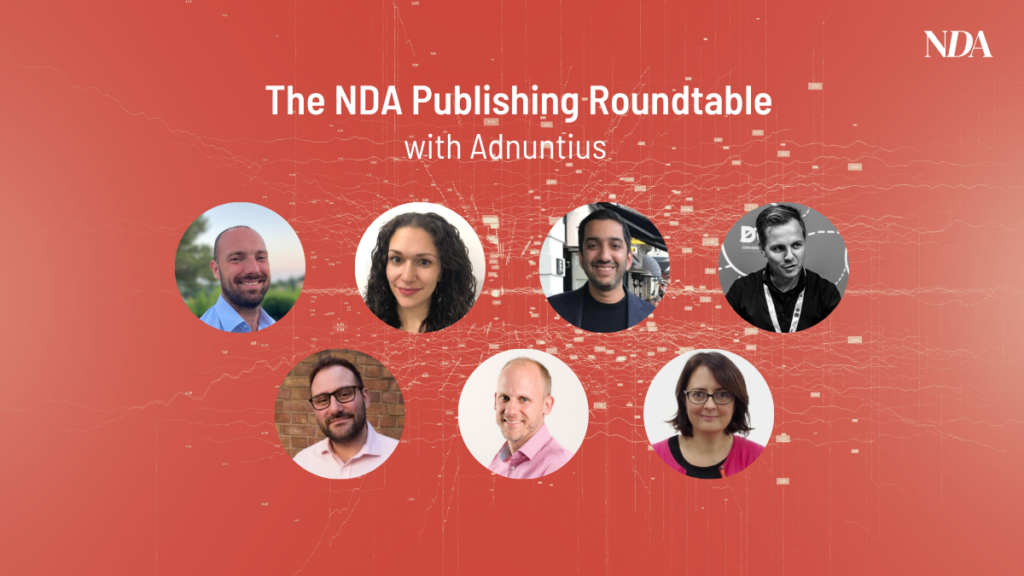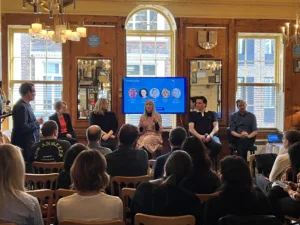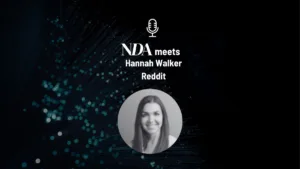NDA recently partnered with adtech company Adnuntius to hold a roundtable discussing the state of the programmatic ecosystem. This is the second writeup of the discussion. The first is here. We were joined by Chris Daniels, Chief Revenue Officer at Haymarket Automotive; Piers North, Chief Revenue Officer at Reach; Guillaume Périé, Programmatic Lead, EMEA at The Wall Street Journal | Barron’s Group; Faisal Karmali, Senior Director of International Business Operations at WarnerMedia; Jo Holdway, Chief Data & Marketing Officer at The Independent; Alex Kirby, Global Head of Programmatic and Commercial Data at Dennis; and Stian Remaad, Chief Executive Officer at Adnuntius.
It feels like we’ve been talking about the deprecation of third-party cookie forever at this point. And, though they’re long gone on browsers like Safari and Firefox, we still have another 18 months until Google begins to remove cookies from its Chrome browser – after the tech giant pushed back the deprecation date earlier this year.
Finding answers
Nonetheless, the industry hasn’t been able to take its foot off the gas and is continuing to work hard to find solutions.
“There are two overall approaches to the industry right now. There are the first-party data strategies, where publishers are getting users to identify themselves, so they can build first-party data segments. And, on the other side, you have unified ID 2.0, with ID5 and a lot of other players using these first-party cookie strategies,” said Adnuntius’ Remaad.
“Personally, I believe a little bit more in getting users to identify themselves. It feels like there’s a huge opportunity for publishers to bring value to their data in a whole new way that wasn’t possible when you had the third-party cookie commoditising consumer information.”
The Wall Street Journal | Barron’s Group’s Périé agrees that first-party data will be very important going forward, but thinks that contextual will play a significant role alongside it.
“I think a mix of first-party data and contextual is super important. But contextual has to be done in a different way, in a more advanced way, as opposed to just targeting sections or keywords and there you go,” Périé explained. “You can’t accurately define your audience like that, so you have to be more intelligent in your approach – taking into account factors like semantic, sentiment, and emotions.”
Périé sees the ‘death of the cookie’ as an opportunity to further deepen their relationship with audiences – using the insights to enhance both the UX as well as develop tailored solutions for advertising partners.
The Independent has made first-party data collection a priority, and has opted to put registration gating in place, which has “done the world of good”. However, Holdaway believes that it’s not enough to just gain consent to store user data, the experience also has to continue to be up to a good standard.
“We haven’t seen any major downsides. But we need to make sure the UX is right,” said Holdaway. “We’re auditing now, looking at our partners and our tech stack, because it can be overwhelming as a consumer. We’ve been quite humbled in terms of how responsive our user base has been, and how they’ve been willing to give us their data, and they do trust us. We don’t want to then fail to reward our readers with bad UX.”
For Dennis’ Kirby, it’s imperative that – whatever strategy is chosen – the deprecation of third-party cookies is seen as an opportunity, rather than a challenge. Because, though it might be “slightly painful”, the industry is used to change, and tends to come out of any change positively.
“Previously, it was privacy, GDPR, and TCF, but we dealt with that. We’ve managed that big change in our industry, and I think that this will be the same thing. We’ll get to a point where we have a raft of different solutions, and it will just become the new normal. And I think our industry will be cleaner and better for it,” Kirby stated.
“It’s just going to be a slightly painful year and a half to get there, because there are a lot of products out there. It’s all about understanding what works for your business, but also finding out what your clients and partners want to make sure that they have accessible routes to buy from you.”
An opportunity to work more closely
One of the big opportunities that the upcoming deprecation of third-party cookies has created is the potential for publishers and advertisers to work more closely and, in turn, create a more transparent ecosystem with fewer intermediaries.
“Around three or four months ago, we saw quite a large flurry of our core client base coming to us and talking to us about how we can help them meet their needs,” said Haymarket’s Daniels. “That has slowed down now, but that proactive approach shows that their thinking is truly changing and that they understand the value exchange, or the value and return on investment that premium good quality data can provide. So, I’ve been very pleased there.”
WarnerMedia’s Karmali feels that the “value of having that one-to-one relationship with a publisher has grown, because we have a relationship with that ID”, noting that we’ve got to remember that the ‘ID’ is a real person.
“The fact that they’ve opted in, through a login or a subscription, is a really good indicator that they’re engaged,” explained Karmali. “I think our client relationships are going to get stronger and stronger because of this. Which technologies will power that in the middle? That will develop, and there will be more innovation there. But, as it stands, those conversations are already starting to happen, which is great.”
On the other hand, Reach’s North warns that though it’s very positive that things are “starting to change on the client-publisher side”, there’s a reason that the programmatic ecosystem exists in the way that it does currently.
“The reason all the technology and the 15% transparency issues arise is because there are a lot of publishers and, if you’re a client, you can’t have conversations with every single publisher in every single space – that’s why agencies cropped up in the first place, and why ad tech exists,” North concluded.









